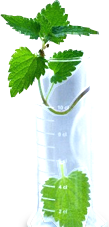



Author(s): S. Umamaheshwari* and S. Mahadeva Murthy
Aristolochia indica traditional folklore medicinal plant was screened for antibacterial activity against Escherichia coli, the predominant enteric organism causing extra-intestinal infections in man, particularly urinary tract, peritoneum and blood. Sun-dried roots (10g) were homogenized in five different solvents - Acetone, Butanol, DMF, Distilled water and Ether. All five root extracts, solvents and standard antibiotics (Ciprofloxacin 30µg, Nitrofurantoin 300µg, Ofloxacin 5µg, Pefloxacin 5µg and Sparfloxacin 5µg) were tested for antibacterial activity against E. coli by disc diffusion method. Solidified Nutrient agar was seeded with 0.5ml inoculum by spread plate technique. The discs impregnated separately with root extracts, pure solvents were introduced on seeded agar plate, similarly the standard antibiotics. The plates were incubated overnight at 37ºC. Growth was determined by measuring the diameter of zone of inhibition expressed in centimeter. The data were subjected statistically to Post Hoc Scheffe test. On comparison of antibacterial assays of pure solvents against root extracts all root extracts exhibited different degrees of activity compared to pure solvents. Ether extract showed maximum activity and butanol extract was least. Acetone, DMF and aqueous extracts activities were same. Among solvents, Butanol and water showed no activity. On comparison of standard antibiotics against root extracts Ciprofloxacin and Ofloxacin activities were higher. Ether extract activity was closer to Nitrofurantoin, followed with Pefloxacin and Sparfloxacin. The study was a preliminary assessment revealing A. indica root extracts showed profoundly distinct antibacterial activity and can promise in fighting against enteric infections which are leading cause for Diarrhoea illness and childhood mortality in developing countries.